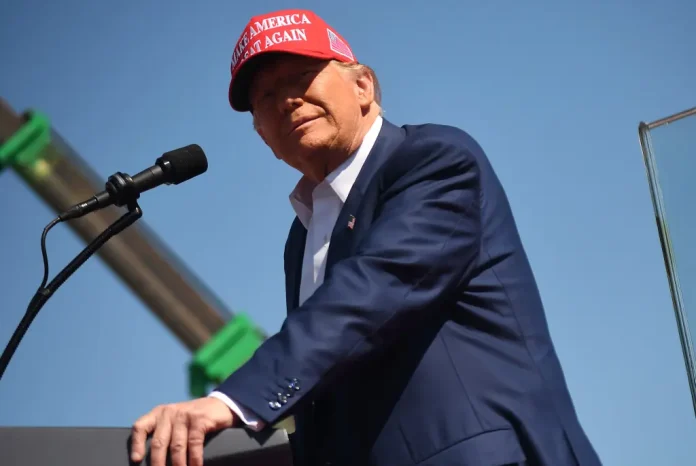Former US president and Republican candidate for the post, Donald Trump, said on Sunday he ruled out running in the next election if he loses in November.
Asked if he sees himself running again in four years if he is unsuccessful in his third consecutive attempt to take the White House, the 78-year-old former president said in an interview on Sharyl Attkisson’s Full Measure programme:
“No I don’t. I think that will be — that will be it. I don’t see that at all. Hopefully, we will be successful.”
Trump faces an uphill battle against Democratic US Vice President Kamala Harris. Polls show the two are tied in key states that are likely to be decisive in determining the winner, although Harris has begun to gain ground in national polls.
Trump made his first bid for re-election in the 2020 election on the same day as his inauguration in 2017, and he announced his latest bid for the White House two years ago, in November 2022.
Johnson goes against Trump with deal averting possible government shutdown
Meanwhile, on Sunday, House Speaker Mike Johnson unveiled a new short-term spending bill aimed at averting a government shutdown, marking a significant shift in strategy for House Republicans. The bill, which would fund the government through 20 December, notably eliminates the SAVE Act, a controversial immigration proposal backed by former President Donald Trump.
Trump has publicly called on Republicans to allow a government shutdown if they fail to include the SAVE Act in the bill to fund the government. That stance has put pressure on GOP lawmakers to take a tough negotiating stance. In a letter to his Republican colleagues on Sunday, Johnson emphasised the pragmatic nature of the decision. He wrote, emphasising the political risks of a government shutdown so close to a crucial election:
“While this is not the solution any of us prefer, it is the most prudent path forward under the present circumstances.”
The Speaker added that the clean, three-month Continuing Resolution (CR) is designed to “prevent the Senate from forcing a bill on us that contains billions in new spending and unrelated provisions,” and that the bill is a “very narrow, bare-bones CR that includes only those extensions that are absolutely necessary.” The new CR represents a compromise between House and Senate negotiators that differs from Johnson’s original proposal to extend funding for six months. Crucially, it lacks the Trump-backed measure requiring proof of citizenship for voter registration, which has been a major point of contention in previous discussions.
The SAVE Act, which passed the House of Representatives as a separate bill in July, is a Republican initiative that would require documentation of US citizenship to register voters for federal elections. The requirement is in opposition to existing laws that already prohibit non-citizens from voting in federal elections. The controversy surrounding the measure heated up last Wednesday when the House of Representatives failed to pass a six-month plan to fund the government that includes the SAVE Act. That failure forced GOP leadership to rethink its strategy to avert a government shutdown.
